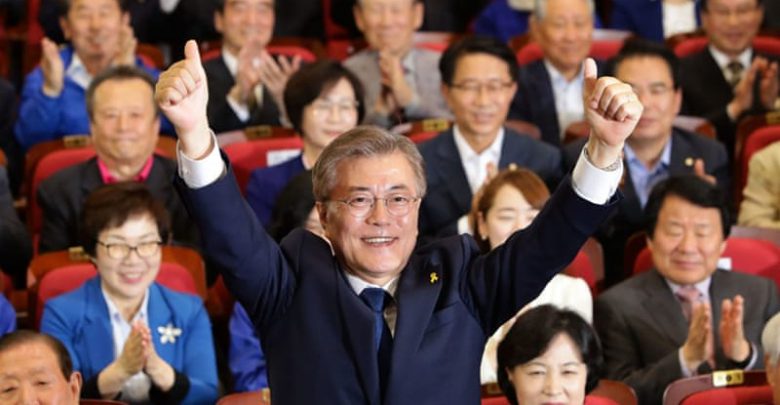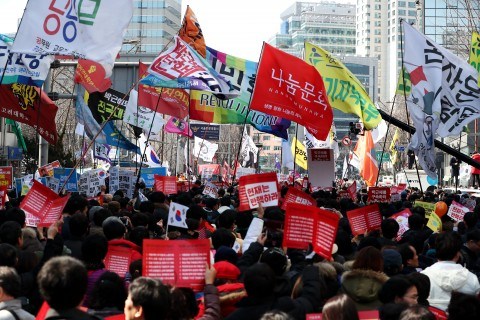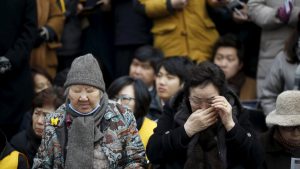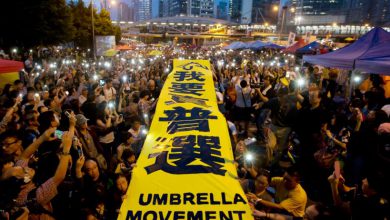AllAsia and OceaniaOngoing
Moon’s Promises: Repair Economy, Rebuke Corruption, Restitution for Korean Comfort Women
The painful imperial legacy of World War II remains in much of Asia. Will President Moon of the ROK ease the lives of former Korean Comfort Women or use their pasts to further his own political agenda?

President Moon Jae-in of South Korea made a spectacular ascension to his current position in the country’s highest office. One of his campaign promises included the disbanding of the 2015 Comfort Women Agreement, to which most of the Korean public applauded, without necessarily taking the needs of the women themselves into consideration. Are the former Korean Comfort Women themselves living their last elder days better because of Moon’s Presidency?
After the impeachment of former President Park Guen-hye after a corruption scandal involving some of the world’s most powerful business conglomerates, Moon’s rise to Presidency came after a formidable campaign in which he vowed to break the binding chains of traditional corruption in the South Korean government sector.
South Korean Social Problems Far from Solved
South Korea has been time and time again described as having a “miracle economy”. What started out as some agrarian nation less than 100 years ago very quickly turned in to one of the planet’s strongest economies, housing technological powerhouses like Samsung within its borders.
Today, major companies including LG and Hyundai are some of the world’s biggest employers, and South Korea and its society has been responsible for their success.

When it was Moon Jae-in’s turn for election, voting-age South Koreans decided on two factors important to them in choosing their next leader: the candidate’s intention to resolve corruption and their interest in recovering people’s livelihoods and the economy. Unfortunately, societal issues including corruption and bribery proved to be more difficult to weed out than anticipated.
The ruling conglomerate families in South Korea still hold large political influence over the country. The dips and peaks in the country’s economy have become more accessible to the general public and their sentiment toward the issues have been expressed accordingly.
What’s Moon’s Deal with Korean Comfort Women?
The symbolic resistance to the Japanese Imperial power seems to be at the forefront of international relations in South Korea. During World War II, the Japanese empire occupied much of South East Asia including the entire Korean peninsula.
After the fall of the Imperial Japan in 1945, Korea gained its relative independence, but still grappled with much of the Imperial legacy in addition to their own tumultuous race for sustainable independence.

The emblematic issue of Korean Comfort Women, those conscripted during the days of World War II to work in military-run brothels, continues to be an issue of importance for those in the ROK. Today, the remaining Korean Comfort Women to remain alive are slowly dwindling, and the elders deserve to see their country take care of them before they pass.
From Brothers to Enemies: The 38th Parallel
The separation of Korea into North and South has an interesting history, tracing back to the Korean War that took place from 1950 to 1953 which eventually ended in a stalemate dividing the peninsula into two separate countries at the 38th Parallel.
In June 1960, the North’s communist army crossed into South Korea aiming to seize Seoul, the capital city. During this period, the Americans still fought any communist tendencies to defend their assets all over the world and lent their support to the South. Beijing on the other hand economically and militarily supported North Korea and their communist party.

The three-year standoff between the two claimed lives of not only Korean citizens, but armed forces of American and Chinese troops as well. The stalemate ended in an armistice agreement, signed on July 27th, 1953.
The contemporary relationship between the two Koreas has not grown far from the stresses of the Korean War. The isolated communist North still poses security issues for its neighbor South Korea and has been accused of developing a nuclear cache with the potential to his not only the ROK’s capital city but targets as far away as Tokyo and the United States.
Moon’s domestic policies should ensure the safety and future of all South Koreans. Although pushes to make the economic policies of politicians more transparent is important, the need to right historical wrongs should be a partnership and not come at the cost of South Korea’s diplomatic relationship with their neighbors in Tokyo.
The issue of Korean Comfort Women should take some agency in South Korea and caring for the remaining women in their elder years should top the list of his priorities.




